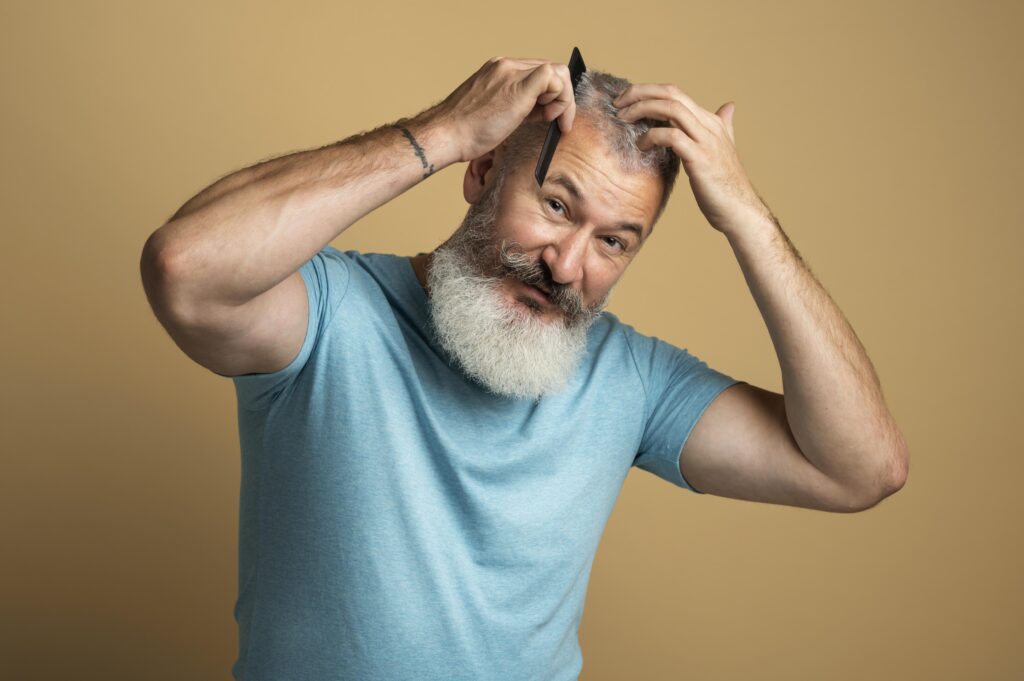Understanding and Managing Your Hair Health

Hair loss is a common concern that affects millions of people worldwide, transcending age, gender, and ethnicity. Whether it’s a gradual thinning over time or sudden, noticeable shedding, the impact on one’s self-esteem and confidence can be significant. In this comprehensive guide, we will delve into the various aspects of hair loss, exploring its causes, prevention strategies, and effective management techniques.
Understanding the Causes of Hair Loss:
- Genetics and Hormones:
- One of the primary factors behind hair loss is genetics. If your family has a history of baldness, you might be genetically predisposed to it.
- Hormonal changes, such as those during pregnancy, childbirth, and menopause, can also contribute to hair loss.
- Medical Conditions:
- Certain medical conditions, such as thyroid disorders, autoimmune diseases, and alopecia areata, can lead to hair loss.
- Chronic illnesses, like diabetes and lupus, may also affect hair health.
- Nutritional Deficiencies:
- Inadequate intake of essential nutrients, especially iron, zinc, and vitamins A and D, can contribute to hair thinning.
- Maintaining a balanced diet is crucial for healthy hair growth.
- Stress and Lifestyle Factors:
- High-stress levels can trigger a type of hair loss called telogen effluvium.
- Unhealthy lifestyle habits, such as smoking and excessive alcohol consumption, can also contribute to hair loss.
Preventing Hair Loss:
- Balanced Nutrition:
- Ensure your diet includes a variety of nutrient-rich foods, such as fruits, vegetables, lean proteins, and whole grains.
- Consider supplements if you have deficiencies, but consult a healthcare professional before doing so.
- Good Hair Care Practices:
- Avoid excessive use of heat styling tools and harsh chemical treatments.
- Use a mild, sulfate-free shampoo and conditioner suitable for your hair type.
- Manage Stress:
- Incorporate stress management techniques into your daily routine, such as meditation, yoga, or deep breathing exercises.
- Regular Exercise:
- Physical activity promotes overall health, including blood circulation to the scalp, which can support hair growth.
Effective Management Techniques:
- Topical Treatments:
- Minoxidil is an FDA-approved over-the-counter topical treatment that has shown effectiveness in promoting hair regrowth.
- Prescription medications like finasteride may be recommended for certain types of hair loss, especially in men.
- Platelet-Rich Plasma (PRP) Therapy:
- PRP therapy involves injecting a concentration of platelets from your own blood into the scalp to stimulate hair growth.
- Hair Transplantation:
- Hair transplant surgery involves moving hair follicles from one part of the body to the balding area, providing a more permanent solution.
- Wigs and Hairpieces:
- Wearing wigs or hairpieces can be a non-invasive and immediate solution for individuals experiencing significant hair loss.
Conclusion:
Understanding and managing hair loss is a multifaceted journey that requires a holistic approach. From identifying the root causes to implementing preventive measures and exploring effective management techniques, taking charge of your hair health involves a combination of lifestyle changes, proper nutrition, and, in some cases, medical interventions. Remember, seeking advice from healthcare professionals and specialists is crucial in finding the most suitable solution for your unique situation. With the right knowledge and proactive measures, you can navigate the challenges of hair loss and embrace a healthier, more confident you.
